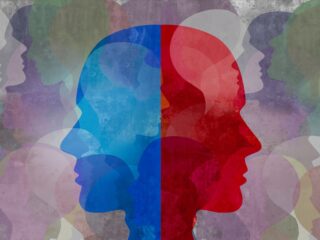Addiction is a very isolating, lonely disease. Yes, it might seem like a person who is hooked on drugs or alcohol may constantly be around other people, but that does not equate to the fulfillment one obtains through having healthy relationships. It is a common misconception that people with an active addiction do not want to stop using, but the truth couldn’t be farther from that. Most addicts want to be able to stop but do not feel like they can, which keeps them trapped in the perpetual cycle of addiction. Part of that cycle is guilt and shame, which is one of the primary reasons why addicts become secretive about their use and isolate from others. Unfortunately, however, blocking out others while abusing drugs only makes the situation worse.
Having strong, healthy relationships is a major necessity in human life. We naturally gravitate towards one another and instinctively want to care and be cared for. But when something as insidious as addiction has taken hold, this need in our lives gets ignored and damaged. But in recovery, connecting with others is vital, as no one can go from being an addict to sober and healthy without the help, support, and companionship of others. That is why group therapy is a vital component in addiction treatment.
What is Group Therapy?
The simple description of group therapy is a form of psychotherapy where individuals come together to discuss commonly shared issues while being led by one or more therapists. Group therapy, however, is so much more than that.
All addiction treatment programs typically offer group therapy, regardless of if a patient is in residential therapy or in an outpatient program. Some of the most common types of group therapy include the following:
- Cognitive behavioral therapy groups
- Dynamic group therapy
- Relapse prevention
- Psychotherapy groups
Therapy is often done in groups because people who have battled addiction tend to share several similarities in their disease. By coming together with others, all patients can benefit from listening, learning, and actively participating in their recovery.
Benefits of Group Therapy
The reason that group therapy is provided in nearly every single addiction treatment program in the country is because it works. Group therapy in addiction treatment is an evidence-based treatment, meaning that it has been tested and declared effective in treating the symptoms of addiction. Group therapy offers endless benefits to its participants, including but not limited to, the following:
- Accountability — The words ‘addict’ and ‘accountability’ do not often find themselves in the same sentence unless you are talking about treatment and recovery. Group therapy in addiction treatment gives recovering addicts the sense of accountability they need to keep pushing towards their goals. Simply knowing that they will be attending group therapy sessions helps recovering addicts stay on the right track so that they do not jeopardize their participation in the group or let others who are rooting for them down.
- Support — As mentioned earlier, people who want to recover from active addiction can’t do it alone. In group therapy in addiction treatment, individuals can thrive from the support they are provided with through other members of the group. Not only can they benefit from being supported, encouraged, and comforted, but they can also benefit from being able to offer support to others, too. Receiving and giving support in group therapy sessions is vital to the health and success of all involved.
- Skills development — Because patients are working in a group setting, they get the opportunity to develop and improve their communication and social skills. Group therapy in addiction treatment encourages having discussions about hard topics, learning how to agree and disagree, and developing compassion for others while also learning the importance of self-care. The sharpening of these skills can help patients improve their relationships with everyone in their lives, from their families to members of their communities.
- Motivation and inspiration — Seeing other members of the group achieve big and small victories in their recovery can give others the inspiration to make continual progress in their own personal recovery. Hearing others talk about where they came from to where they are now also increases motivation in all who are actively listening, as seeing the actual transformation of an addict in plain sight can keep them fighting for the same in their lives.
- Learning from others — Not everyone in group therapy is going to share the same cultural, educational, economic, or social backgrounds. This is one of the greatest benefits of group therapy because it provides everyone the chance to learn from others experiences and continue to grow in their recovery. The simple act of sharing personal stories with each other can provide the group with insight and help them think about things differently than they would have if they did not engage in these conversations and activities with others.
These are merely just some of the many benefits of group therapy in addiction treatment. Most importantly, however, is that group therapy shows addicts that they are not alone. There are people who are facing the same struggles they are and who have gone through the trials and tribulations of addiction just as they have. Going from feeling like the only person in the world with an addiction to being in a room of others who can personally relate is a benefit in itself.
Ohio Addiction Recovery Center
Being addicted to drugs or alcohol is no way to live. You do not need to keep putting yourself through the ups and downs that this disease causes, nor do you need to continue to be in emotional pain. With the right treatment that includes group and addiction therapy, you can begin to make the changes needed to keep from abusing drugs or alcohol again.
If you are ready to stop using for good, call Ohio Addiction Recovery Center right now. We understand your pain and know that we can help if you let us. Do not wait any longer to ask for the help that you deserve.






